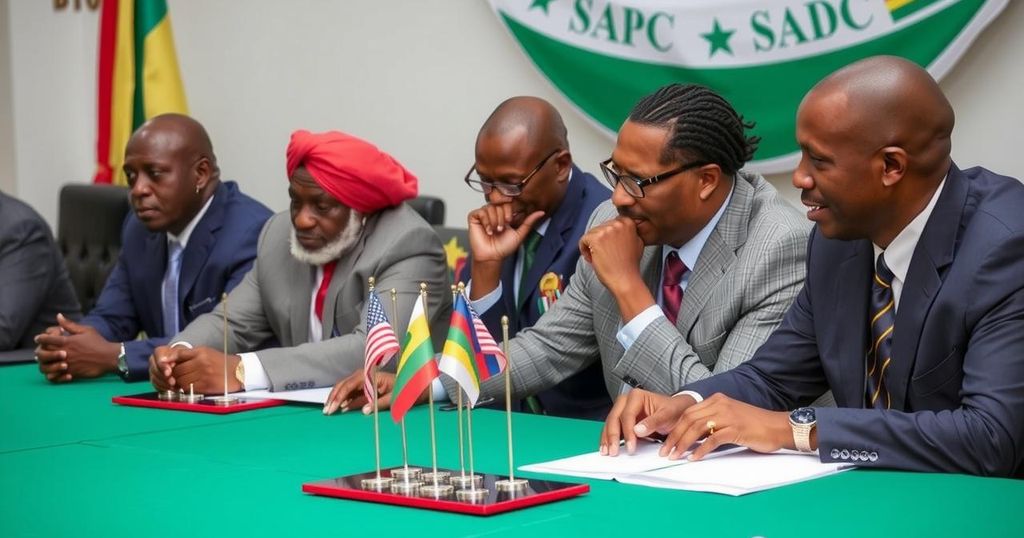Zimbabwe’s President Emmerson Mnangagwa has stated that the Southern African Development Community (SADC) is prepared to assist Mozambique amidst a crisis of post-election violence which has resulted in over 100 deaths. With calls for dialogue from regional leaders including South Africa, there is a pressing need for a resolution to restore stability in the region.
Emmerson Mnangagwa, President of Zimbabwe and current chairperson of the Southern African Development Community (SADC), has affirmed the bloc’s readiness to assist Mozambique, which is experiencing severe post-election turmoil. Human rights organizations report that this violence has resulted in more than 100 fatalities. Following claims from opposition parties regarding electoral fraud in the recent October 9 elections, escalating unrest and violent protests have engulfed the nation.
President Mnangagwa emphasized the necessity for an immediate halt to the violence following the Constitutional Council’s declaration of a 65% electoral win for the ruling Frelimo party. South Africa’s Minister of International Relations, Ronald Lomola, echoed these sentiments by advocating for urgent dialogue among all parties involved. Lomola stated, “South Africa calls on all parties to commit to an urgent dialogue that will heal the country and set it on a new political and developmental trajectory. Furthermore, South Africa is ready to assist Mozambique in any manner to facilitate this dialogue.”
Venancio Mondlane, an opposition leader, refrained from focusing on the struggles of the Frelimo party and instead called for collective efforts among citizens for change, suggesting that mutual support for local businesses would be beneficial.
Khanyo Farise, the Deputy Regional Director for Amnesty International, criticized the Mozambican government for its crackdown on demonstrators, describing it as one of the worst assaults on protest rights. “We have seen police using live ammunition, using rubber bullets and using various forms of excessive force against protesters,” she elaborated, highlighting the severe consequences of the governmental response to dissent.
Meanwhile, Borges Nhamirre from the Institute for Security Studies underscored the economic implications of the unrest, pointing out that the closure of ports has paralyzed trade and heightened hardships for the populace. He asserted, “There is no alternative to dialogue,” reinforcing the importance of peaceful negotiations to restore stability and economic functionality in Mozambique.
With increasing calls for peace from both opposition groups and international organizations like SADC and the African Union, there exists cautious optimism for a resolution in Mozambique’s ongoing crisis.
The current situation in Mozambique has been exacerbated by violent protests following controversial elections held on October 9, where allegations of electoral fraud led to significant civil unrest. The SADC has stepped in, signaling its readiness to play a mediating role in the crisis. As deaths among protesters continue to rise, regional leaders emphasize the need for dialogue and a peaceful resolution to return Mozambique to a path of development and stability. This crisis is not only a political issue but also poses substantial economic challenges, affecting neighboring countries dependent on Mozambique’s ports for trade.
The evolving political landscape in Mozambique necessitates urgent dialogue among all stakeholders to restore peace and stability. The involvement of SADC and support from regional leaders reflect a collective commitment to resolving the ongoing crisis. As calls for peaceful negotiations increase, there is hope for meaningful change that can lead to a more secure and prosperous Mozambique for its citizens and its neighbors.
Original Source: www.voanews.com






